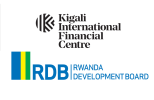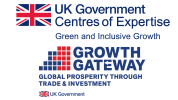Challenges Facing African Investment Strategies Now
Investing in Africa presents a unique set of challenges. These hurdles can impact the success of African investment strategies.
Political instability, economic volatility, and infrastructure deficits are just a few. They can significantly affect investment returns.
Yet, despite these challenges, Africa offers promising investment opportunities. Its growing consumer markets and technological innovations are noteworthy.
This article explores the challenges facing African investment strategies now. It also provides insights on how to navigate these complexities.
Understanding the African Investment Landscape
The African investment landscape is diverse and dynamic. With 54 countries, each has its own unique markets and opportunities. Understanding these differences is crucial for investors looking to succeed.
Africa’s economic potential is vast, yet it remains complex. Investors need to consider cultural, political, and economic factors. Only by doing so can they tailor their strategies effectively and unlock the continent’s vast opportunities. This requires a deep understanding and adaptation to local contexts.
Political and Economic Volatility
Political instability is a major concern across several African nations. This can deter potential investors due to the unpredictability it introduces. Changes in government or policy can significantly impact investment returns.
Economic volatility also poses challenges, with fluctuating currencies and rising inflation rates. These economic factors can reduce profit margins. Investors must remain vigilant and adaptable to navigate these uncertainties effectively.
Infrastructure and Regulatory Hurdles
Africa’s infrastructure deficits present a significant barrier to investments. Inadequate transportation networks and unreliable energy supplies can disrupt business operations. These issues can also slow down the pace of growth.
Regulatory challenges often further complicate the investment landscape. Lengthy bureaucratic processes and inconsistent regulations can stall projects. Investors must prepare for these obstacles and develop strategies to navigate them efficiently.
Governance, Transparency, and Corruption
Effective governance and transparency are crucial for attracting investments in Africa. Investors often seek stable environments where policies are predictable and clear. Poor governance can deter potential investment opportunities.
Corruption remains a significant challenge affecting investor confidence. It can lead to increased costs and unpredictable outcomes. Addressing corruption is vital for building trust and promoting a stable investment climate.
Access to Capital and Financial Services
Many African businesses struggle to secure capital, hindering their growth potential. Limited access to loans and investments hampers development.
Improving financial services is essential for fostering a thriving business environment. Expanding access to capital can unlock new opportunities and drive economic growth.
Embracing Technology and Innovation
Technology and innovation are transforming African investments. They offer solutions to traditional challenges in various sectors.
Investing in technology can drive efficiency and growth across diverse industries. Embracing innovation is key to staying competitive and relevant in the African market.
Environmental Challenges and Sustainable Investment
Environmental issues pose serious risks to investments in Africa. Climate change impacts agriculture and natural resources, vital sectors for many investors.
Pursuing sustainable investment strategies is crucial. Investors must consider social and environmental responsibilities to ensure long-term success and stability in these markets.
The Role of International Support and Local Partnerships
International organizations play a pivotal role in supporting African investments. They provide funding, knowledge, and technical expertise to boost economic growth and stability.
Local partnerships are also vital for success. Collaborating with local entities helps investors understand the market landscape and navigate cultural nuances effectively.
Conclusion: Navigating Investment Strategies in Africa
Successfully investing in Africa requires a nuanced approach. By understanding challenges and leveraging local insights, investors can unlock significant opportunities for growth and prosperity across the continent.













































